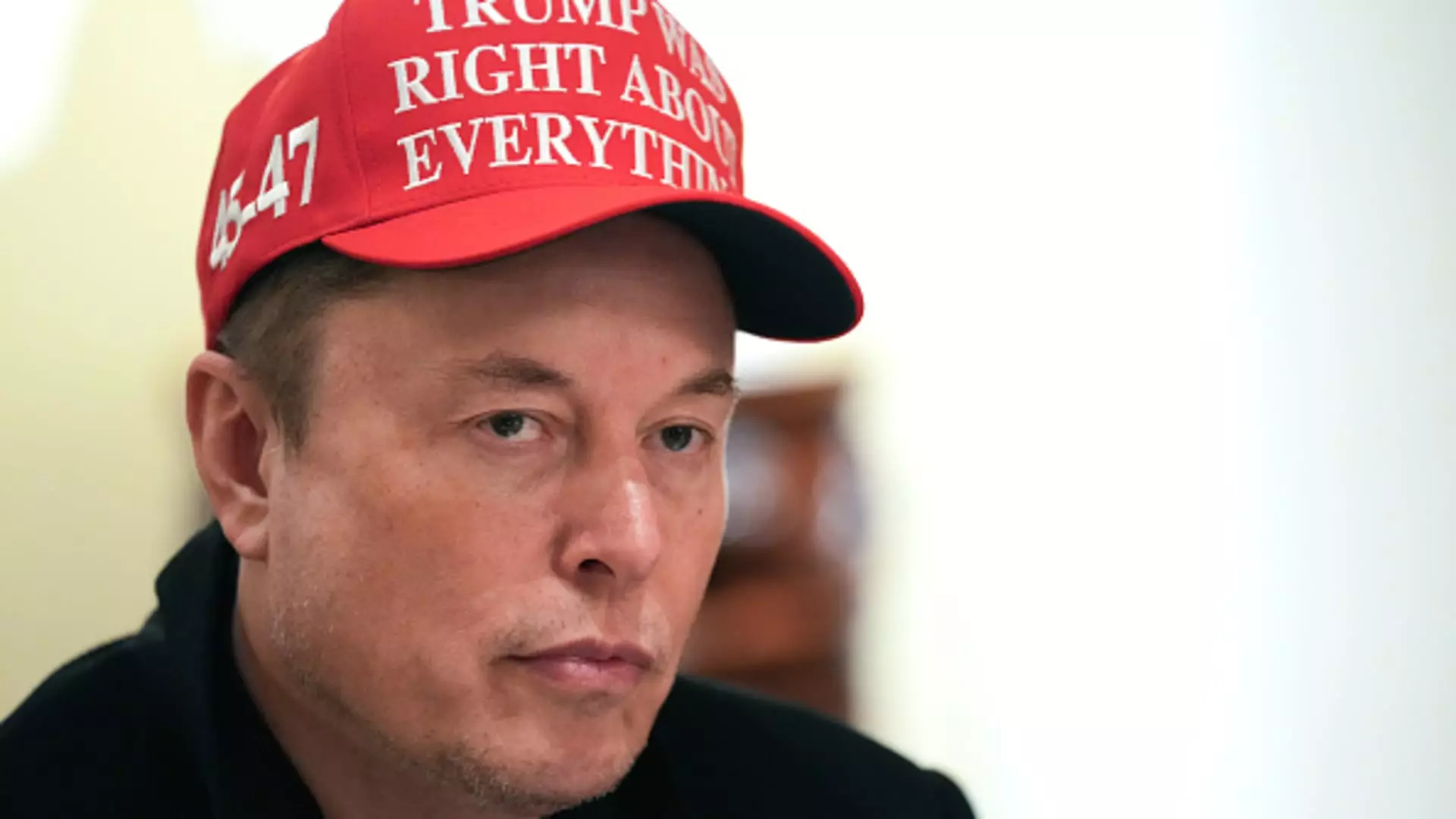Tesla’s staggering decline in stock prices reveals far more than just a momentary issue with the marketplace; it epitomizes a broader brand identity crisis that threatens to diminish the company’s once-celebrated status. With shares plummeting nearly 6% on a day before their crucial first-quarter earnings report, investors are understandably anxious. The price settled at $227.50, perilously close to the year’s low, and down a shocking 44% overall for 2023, and this isn’t mere market volatility—it’s an indictment of leadership choices, public perception, and competitive vulnerabilities.
For many followers of the electric vehicle (EV) giant, the discussions surrounding Tesla’s future now resemble less an optimistic forecast and more a painful analysis of mistakes made in real-time. Analysts have repeatedly flagged concerns regarding “ongoing brand erosion,” a phenomenon no longer limited to mere stock performance but extending to public sentiment, which is rapidly shifting away from the once revered EV pioneer.
Musk’s Distractions and Their Consequences
At the heart of Tesla’s decline is its CEO, Elon Musk, whose focus seems divided among various entrepreneurial ventures and increasingly contentious political adventures. The clear question is: how are these distractions affecting Tesla? Many of Musk’s initiatives—including his financial engagements with politically divisive figures—surfaced during a period when Tesla should have been maximizing its potential. Critics argue that his involvement in controversial political initiatives, such as the push to reduce federal government capacities, dilutes the company’s image and strategy.
Investor sentiment, already fragile, faces additional hurdles. In an online forum designed for investor inquiries, over 300 questions pertained to Tesla’s stalled self-driving projects, raising alarms about the company’s genuine innovation capabilities. Questions about Musk himself outnumbered those about product advancements, a clear indication of misplaced priorities and wavering confidence. One particularly pointed inquiry highlighted the board’s limited actions inaddressing the brand damage instigated by Musk’s political interests. The erosion of trust in leadership could hence have severe long-term repercussions.
Market Competition and Vulnerability
Behind the scenes, a brewing storm in market competition exacerbates Tesla’s predicament. The Oppenheimer analysts’ assertion that Tesla is undermined by potential weakness in China—a critical market for the company’s growth—is alarming. Consumer trends in China, shifting towards local brands, pose a threat. Competition is intensifying as nationalistic sentiments drive a reluctance to purchase foreign products, which inevitably places Tesla’s success in jeopardy. The ramifications could be severe if China’s market further contracts, particularly given the potential for negative price pressures on Tesla’s exports.
On a broader scale, the anticipated impact of tariffs from the Trump administration could transform the landscape for U.S. manufacturers. Any downturn here could have a ripple effect on Tesla’s revenue and gross margins, raising the specter of a far-reaching financial dilemma that no amount of engineering prowess can alleviate.
Consumer Sentiment and Brand Loyalty
Tesla’s consumer sentiment, a once-gilded narrative, has tarnished significantly in recent months. According to research firm Caliber, only 27% of surveyed individuals in March expressed interest in buying a Tesla, a drastic drop from 46% just two years prior. This decline underscores deep-seated emotional and rational shifts among consumers, prompting analysts to speak of potential “permanent demand destruction.”
Once considered the darling of eco-conscious and tech-savvy buyers, Tesla is now facing an uphill battle to rebuild its reputation. Many Tesla enthusiasts are now re-evaluating their loyalty as Musk’s antics blur the lines between innovation and political theater. As the company attempts to introduce the much-touted “Full Self-Driving” capability, the public remains skeptical whether such a development can serve as a genuine remedy to the identity crisis afflicting the brand.
The Future: Uncertain Yet Pivotal
The forthcoming earnings call will serve as an inflection point for Tesla and its supporters, but the question remains: Can Musk deliver a compelling vision that articulates not just a path for recovery but a reimagining of the brand ethos? Investors are right to anticipate a strategy that could revive interest and confidence, and for those of us observing from the sidelines, the stakes could not be higher. Without radical yet cohesive leadership, Tesla risks becoming a cautionary tale of innovation squandered—a stark reminder that leadership choices in business extend far beyond the boardroom and deeply into the societal and political fabric.

